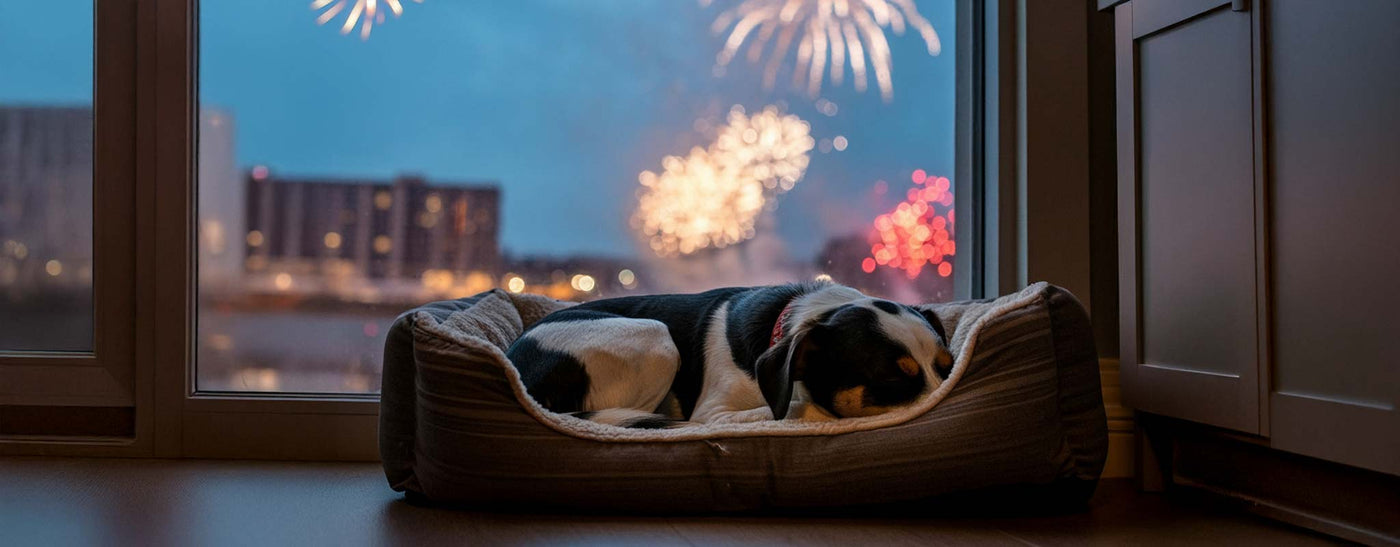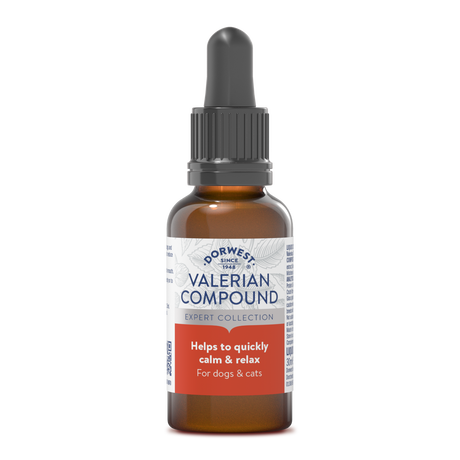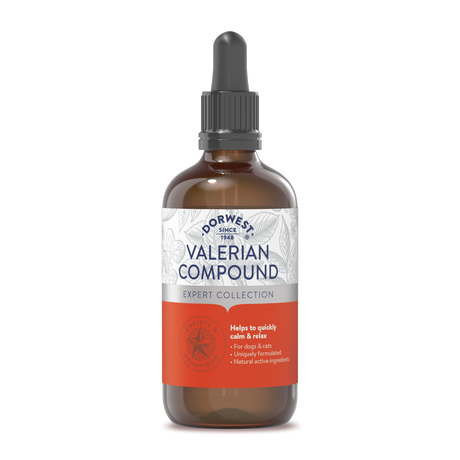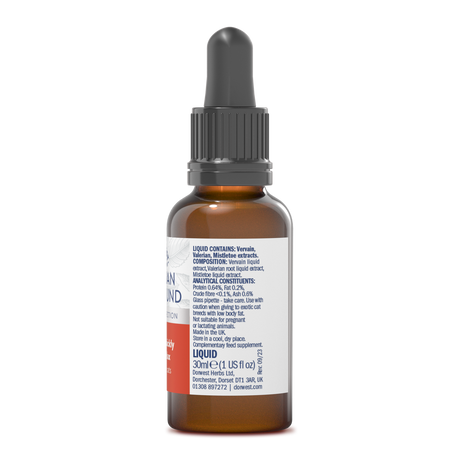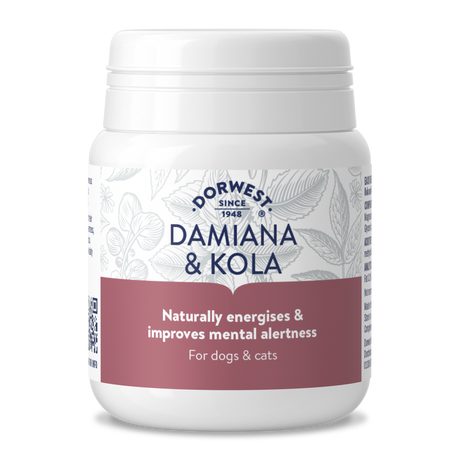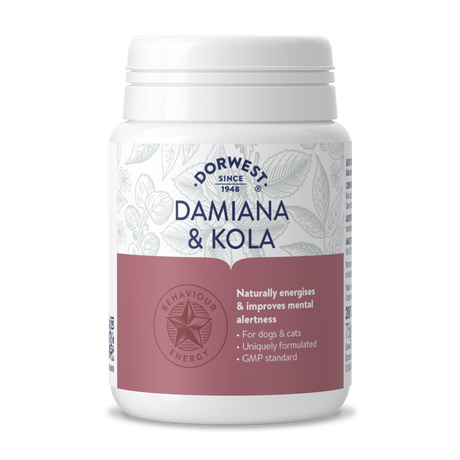There's no denying that firework stress & fear is REAL! But - did you know your dog’s hearing is far more powerful than ours? Those super-sensitive ears can pick up sounds we’d never even notice! So, it makes sense as to why the loud cracks, bangs, zooms and flashes of fireworks can cause confusion and panic for many of our pets.
Some dogs are more fearful of loud noises due to their genetics, temperament, early life or past experiences. A Norwegian study across 13,000 dogs, from different breeds, discovered that over 32% were scared of loud noises. So, why is it that some dogs are utterly petrified and others couldn't give a hoot when it comes to fireworks?
Keep reading as we explore the top reasons, what you can do to help and everything you need to know about firework anxiety in dogs!
Key takeaways
- Fireworks = Fear - Fireworks are one of the most common causes of fear in dogs, with studies reporting that up to half of all dogs can become frightened by the sudden bangs and flashes. Try not to worry, taking early action really helps – the sooner you start supporting your dog, the easier it is to manage.
- Breed can play a big role - Some breeds are naturally more sensitive to noise than others. For example, herding breeds like the Norwegian Buhund tend to be more alert and reactive compared to gun dogs, such as Labradors. It's simply a reflection of the different jobs they were bred for.
- Age matters too - As dogs get older, their reactions and sensitivities can change. Research suggests that senior dogs are more likely to develop noise-related anxieties, so a little extra support can go a long way.
- Be prepared - Just like with us humans, there's never a quick fix for anxiety. It will take time for your dog to feel calm and comfortable if they've been fearful before, so it’s best to start introducing calming methods well in advance to fireworks season. With the right routine, time and patience you can help them feel relaxed and safe when the fireworks begin.
How common is firework fear?
It’s pretty normal for your dog to hate fireworks and feel anxious whenever they start. Would you be able to relax if there were unexpected loud bangs and bright lights coming out of nowhere?
There have been a number of studies over the years but one American study states that 52% of dogs experience some degree of firework fear, with the majority of them developing it in their first year of life. To put that into global dogs: that's potentially 250 million dogs hiding when the fireworks start! It's a big old problem in the pet world.
What do fireworks sound like to dogs?
Humans can detect sounds between 20 Hz and 20,000 Hz but dogs can detect frequencies as high as 47,000 to 65,000 Hz, which means they’re far more sensitive to high-pitched noises, whether it’s the squeak of their favourite toy or the sudden sound of fireworks.
Fireworks are loud and produce sneaky high-frequency sounds that we can't hear but your pup can! So, it’s not just the volume that’s ear splitting - it's also the pitch! For them, every bang is like standing next to a jet engine during takeoff!
Why are some dogs afraid of fireworks?
 Why do dogs hate fireworks so much while others seem fine? There can be a multitude of reasons at play, even within your own dog. So, let's dig in…
Why do dogs hate fireworks so much while others seem fine? There can be a multitude of reasons at play, even within your own dog. So, let's dig in…
Breed
Genes make some dogs naturally more fearful than others. A study that looked at noise sensitivity in 17 dog breeds showed that Gun dogs, like Labradors are generally much less terrified of loud noises, whereas Herding Breeds like the Norwegian Buhund were found to be far much more sensitive.
Age
As your dog moves through different life stages, those experiences shape how they respond to loud noises.
- Puppies: With their big eyes and wagging tails, puppies often seem ready to take on the world but in reality they aren’t quite ready yet. Their brains are still learning how to process new experiences so it’s a really critical time in their development so loud noises or flashing lights can be very overwhelming for them.
- Senior Dogs: As our golden oldies start to slow down, they can become more sensitive to noise. This can happen for a number of reasons, such as a change in their hearing, so it makes it harder to place sounds, cognitive changes make it harder to process information or body aches and strains can make any stress harder to handle.
Personality
Every dog is special in their own way! Whether they are nervous and very attached or confident and aloof, each personality is varied and unique which then affects how they handle stress. While some dogs are naturally more worried and noise sensitive, some studies suggest that confident, social dogs are far less likely to be spooked.
Socialisation
It’s important to make sure that your dog has that early socialisation with other four legged pals! Puppies who have spent time with our young and adult dogs are far more likely to grow up confident and better equipped to cope with anxiety and loud noises.
Anxiety
It’s important to look after your dog's mental health as well as their physical health! Dog who are already dealing with anxiety, such as separation anxiety and are much more likely to be stressed by loud noises, so it’s all connected. If your dog has always struggled with socialisation and anxiety, we'd always recommend working with an accredited dog behaviourist and trainer, to help build up their confidence.
How do I know if my dog is scared of fireworks?
Sadly, dogs can't tell us how they are feeling, the way they communicate with us is through their behaviour. By recognising the signs of fear within your dog and understanding what their behaviour means in different situations, you can better support them in stressful moments.
Here are they key signs to watch out for:
- Destroying things like furniture or carpets
- Having accidents inside the house
- Escape attempts
- Growling, snapping, or aggression
- Hiding under furniture or cowering
- Crying or whining
- Non-stop barking
- Restlessness, constant yawning or licking their lips
- Wide, whale eyes
Why do dogs bark at fireworks
Some dogs barely notice fireworks while for others it's a stressful ordeal! If your dog starts barking persistently and loudly, they’re not being naughty, it's their natural way of telling you that they might be scared and see it as a threat, or even try to self-soothe in a moment of stress.
Dorwest Calming Success Stories

Nara was found seeking affection at a train station in Ukraine before being rescued and brought to the UK. When she arrived, everyday sights and sounds felt overwhelming. We caught up with her owner, Amy to hear how with time, love, and Dorwest's support, Nara has blossomed - gaining confidence and settling her sensitive tummy after a poor start in life.
"Scullcap & Valerian has been a game-changer for Nara" - Owner, Amy
“Everyday things we take for granted were all new to Nara. While she settled at home quickly, she was nervous around unfamiliar sights and sounds, even stairs and the TV were a worry at first. It took time, patience, and lots of encouragement to help her feel safe with things like car rides or passing buses. It was a learning curve for us all, but with consistent training and calming supplements from Dorwest, we’ve watched her confidence grow! It’s been one of the most rewarding parts of our journey together.”
“Nara is extremely noise-phobic, reacting to loud bangs — making firework season and farming time with bird scarers truly traumatic for her. While it’s hard not knowing the root cause, Scullcap & Valerian Tablets and Valerian Compound have been a game-changer. We use the tablets daily for ongoing calm and the Valerian Compound for trigger moments like Bonfire Night. While we may never be able to remove her fears, helped keep Nara calmer in these stressful moments.”
Now happily settled in her new home with Amy and with the help of Dorwest, she has gone from a nervous stray to a smiley, loving part of the family - a beautiful reminder of the resilience of rescue dogs!
Watch our latest video as to how Nara & Amy get ready for fireworks night!
What can I do to help my dog now?
Being prepared is best! Our Dorwest Scullcap and Valerian tablets offer proven results - a 2022 Cambridge University study revealed they reduced anxiety in 87%* of dogs. What's amazing is that they can be given daily to provide natural calm without any drowsiness, perfect for getting your nervous dog ready for any big fireworks event.
But, for last-minute top tips check out the below.
- Herbal help - Our Valerian Compound provides fast-acting natural calm when needed. The liquid compound kicks in within just 30 minutes - a few drops on their dinner is all it takes.
- Keep calm and carry on - If you can manage to stay cool as a cucumber it’s a clear signal to your pup and that there is nothing to worry about.
- Keep your dog inside - Ensure your dog is tucked up inside once to bangs begin and do not take them along to a firework display - even if they seem relaxed. The goal is to prevent any unnecessary exposure to loud noises and bright flashing lights during stressful periods.
- Create a safe retreat - Create a quiet, warm and cosy spot in a room furthest away from the firework display - pack it full of their favourite blankets, and toys, turning this into their very own safety retreat.
- Block out the chaos - Try muffling the noise and blocking out any flashing lights by closing windows, doors and curtains. Also try creating an insulated nest by covering your dog's crate or bed - combined these efforts will significantly reduce the chaos.
- Drown out the noise - To help reduce the loud and high pitched fireworks sounds we recommend playing calming music - try a Dorwest team favourite Classic FM’s - or even white noise if that's not their cup of tea.
- Keep them distracted - By keeping their mind engaged and attention elsewhere you remove the focus away from anything scary - try a game of hide and seek with their favourite toy or even just lots and lots of cuddles on the sofa.
- Preventing runaways - Keep those doors (and windows) locked to guarantee your dog doesn’t try to make a hasty exit and escape while in a complete panic. It’s also worth double checking their dog's microchip details are all up to date.
- Don’t punish a scared dog - It’s always good to remember, if your dog does have an episode during a fireworks display they aren't being naughty - they’re just very scared. By punishing them you’ll only compound any firework fear factor and make the entire problem much worse.
For a full step-by-step plan on getting ready for firework season, contact our expert advisors for your personalised calming plan >
Key firework periods
While fireworks can happen any day of the year, there are certain times when you should expect noise levels to spike, and you can prepare your dog's safe space in advance.
Main firework events
- Bonfire Night (5th November, UK) is the UK's biggest fireworks period.
- New Year’s Eve (31st December) brings a surge of bangs at midnight.
- Diwali (October/November) features firework displays for the Hindu festival of lights.
- 4th of July (US) is Independence Day and one of America’s biggest firework celebrations.
Dorwest advice
At Dorwest, we understand how worrying fireworks events can be! In some cases anxiety symptoms creep up on us whereas others may be triggered from the first bang.
Understanding why some dogs are more fearful, the science behind their super-hero hearing and how you spot early signs of firework anxiety seeping in - are the key to a happy fireworks event, whether it's bonfire night in the UK or the 4th of July in the US.
Stay calm and consistent. Dogs need structure, routine and relaxed owners - remember if you are super stressed about the upcoming fireworks display your pooch will feed off that negative energy.
- Start our calming supplements early, at least 3 weeks before the bangs start.
- Create a quiet cosy bed away from the noise.
- Practise gentle desensitisation training in the run up to any firework event.
Common Questions (FAQ)
How long does stress from fireworks last in dogs?
If your dog was stressed or fearful over fireworks night most will have calmed down to their normal state in a few days. Feel free to help this process with lots of hugs and cuddles, fun games and sniffs and calming herbal supplements to help speed up their recovery.
What do vets give dogs that are scared of fireworks?
Vets generally avoid heavy medication unless absolutely necessary. They prefer a gentler approach, often recommending mild sedatives, anti-anxiety aids or natural supplements like Scullcap & Valerian tablets to help naturally reduce stress, safely and gently.
What natural remedies help with fireworks anxiety?
If you want to calm your dog naturally with herbal remedies, our Dorwest Scullcap & Valerian tablets and Valerian Compound are packed with the natural herbal ingredients we pride ourselves on. Pair this with other behavioural & training techniques, from creating a cosy den, playing classic radio - you'll be fireworks ready!
Why are dogs scared of fireworks but not thunder?
Sudden unannounced thunderstorms can definitely upset some dogs. But fireworks do have a worse repetition when it comes to canine fear factor. Their pitch, suddenness and intense short period of noise really can overload some pups senses.
Can I take my dog to a firework display?
Our advice would be under no circumstances should you take your dog to a firework display, or even have them outside if you are hosting a fireworks party. Regardless of whether your dog seems relaxed at the time, anxiety can suddenly kick in with more extreme reactions. There is always a danger when your dog is outside, that the fear can cause them to escape or try to run away, which no one would want.
If you have any questions or need any help choosing which product is best for your pet's anxiety - feel free to reach out and contact us our expert and friendly team on 01308 897272 or email info@dorwest.com.
For more top tips and behind-the-scenes updates, follow us on Facebook, Instagram or TikTok!
*unpublished data, contact us for further details
